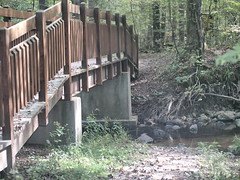 Time gets away from you so easily, I'm afraid. I am short on Old West research for my nano novel. You may be in the same position as me. So what can you do? Schedule reading periods. Read something before you start the day's writing. Read something after you are done for the day that will help you with the next day's piece. In my case, I have to decide what I need to know about Old West for each "key scene".
Time gets away from you so easily, I'm afraid. I am short on Old West research for my nano novel. You may be in the same position as me. So what can you do? Schedule reading periods. Read something before you start the day's writing. Read something after you are done for the day that will help you with the next day's piece. In my case, I have to decide what I need to know about Old West for each "key scene". For instance, the Beginning "Scene" or "Story Arc" is Walker's exile and entrance into a new world. His first impression. Originally, I envisioned this as a grassy open place with a dusty road, kinda nondescript. If I want to hint at my Old West inspiration right away, I am going to have to do better than that. That is where research comes in. So nondescript is out, however whatever Walker sees cannot be super scary. I am saving that for the Launch Scene/Arc, the first firm sign of this world's weirdness in the form of a supernatural and rather toothy horse. So although this scene is short and my research vague, I know if I do some reading, I'll find that which I need.
The next key scene is the Launch. It involves the actual meet of man-eating horse and man, so horse research is needed. After all, the horse makes a living pretending to be that which it is not--a regular horse. It has to act . . . horsey.
That is the first two bits of research I need to do. How about you? Research all done or do you conduct research on an as needed basis?